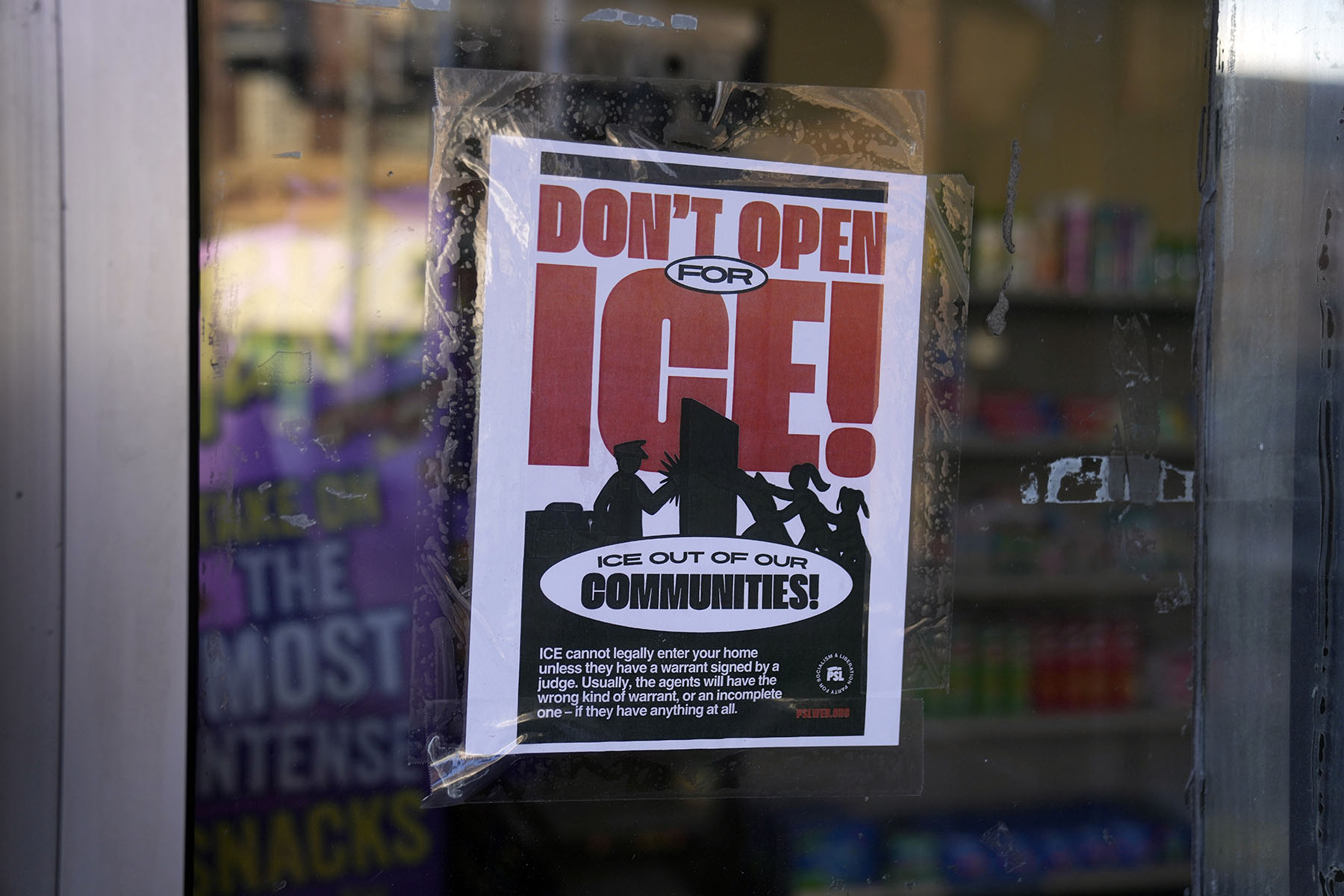Just a day after Trump issued a slate of executive orders aimed at restricting immigration, the Department of Homeland Security (DHS) announced it was rescinding protections for “sensitive zones” where undocumented immigrants were protected from deportation. Some immigrant rights advocates are particularly worried that this could deter women experiencing domestic abuse from going to women’s shelters, which will no longer be protected from U.S. Immigration and Customs Enforcement (ICE).
“The Trump Administration will not tie the hands of our brave law enforcement, and instead trusts them to use common sense,” a DHS spokesperson said in a statement.
The sensitive zones policy, which was created in 2011, initially applied to places like churches, schools and hospitals. In 2021, the list of places was expanded by the Biden administration to include locations offering disaster or emergency relief and social services. The policy was put in place to allow undocumented immigrants access to essential services like health care without the threat of being deported. ICE could enter these places only if there was a threat of terrorism or imminent risk of death, among other exceptions.
“What is really important about sensitive zones is that they allow migrant women and families to safely access these spaces without fear that ICE will arrest or deport them there,” said Zain Lakhani, director of the Migrant Rights and Justice Program at the Women’s Refugee Commission. “The impact might be, for instance, that a domestic violence survivor will stay in an abusive situation because they’re being forced to choose between their immediate safety and arrest and deportation if they go to a shelter or take their children to a shelter.”
The administration could further hamper services for those experiencing domestic violence by expanding the definition of a “public charge,” which Trump did in his first term, though it was struck down by a federal court a year later. The public charge rule, which had previously been defined by a 1999 field guidance, means people can be turned down for visas or green cards if they are determined to be dependent on the government financially.
This rule had typically been restricted to cash-assistance initiatives like the Temporary Assistance for Needy Family program, but Trump expanded it to include non-cash assistance programs like food stamps and Section 8 housing. Trump also changed the length of time someone could be in assistance programs before becoming ineligible, leading to a lot of uncertainty over who would be deemed a public charge. Many immigrants were less likely to enroll in programs during this time, even if they were eligible.
That had a particular impact on victims of domestic violence. The public charge rule did not apply to people with a U or T visa, which is available to victims of human trafficking and violent crimes like domestic violence. But the change in definition caused confusion both among people dispensing legal advice and the visa recipients themselves, who were entitled to some of these benefits but scared to access them. Housing or food assistance can be the difference between someone staying or leaving an abusive situation, Lakhani said.
“There was just a lot of confusion and a huge amount of chilling,” she said.

And now, even the U and T visa program could be dismantled by the Trump administration as called for by Project 2025, which is largely seen as the policy blueprint for Trump’s second term.
When someone applies for this visa, it creates an alert to immigration authorities that bars ICE from taking any enforcement action against a person if a tip comes in from the person committing the abuse. Ultimately, that stops abusers or human traffickers from being able to threaten people with deportation, Lakhani said.
While these visa programs need an act of Congress to be overturned, Lakhani said, there are levers the administration can pull to make the program ineffective. For example, they could decide to pause new applications for any visa category that is heavily backlogged. U visa applicants are currently waiting around 15 years for resolution of their cases, she said.
“The times are just astronomical, right? And so, of course, that is going to be considered a very heavily backlogged category, and so they could essentially cut off all access,” Lakhani said.
“So much of these policies, what they do is instill fear, and I think that’s really critical,” Lakhani said. “It’s extremely dangerous because the state doesn’t even need to enforce them, in order for people to self-select out, and it forces them into these impossible, impossible choices.”






